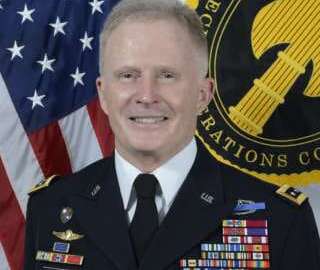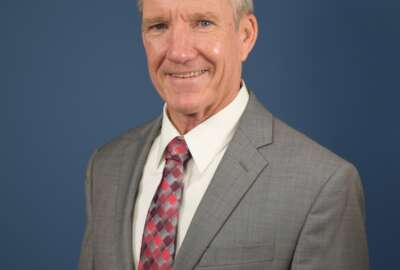
Preparing Army Special Operations for ‘changing’ ground warfare
Robert Toguchi at US Army Special Operations Command detailed the Army Special Operations Forces’ goals for 2035 and beyond.
Artificial intelligence and digital footprints are top of mind for Robert Toguchi. The chief of the concepts division at US Army Special Operations Command (USASOC) said an increasingly interconnected world is expected to make things harder for troops.
Agency in Focus — SOCOM covered Toguchi’s speech at the Association of the United States Army Global Force Symposium in Huntsville, Alabama, where he detailed the Army Special Operations Forces’ (ARSOF) goals for 2035 and beyond. ARSOF accounts for more than half of special operations forces and provides capabilities such as an indigenous approach, precision targeting, understanding and influence wielding, and crisis response.
“We are on the cusp of fundamental change in the character of ground warfare,” Toguchi said at the March event. “Ground warfare is changing; it’s changing under our feet. And all those here in this environment know what I’m talking about.”
Although the Defense Department has traditionally looked more at large-scale operations, the “competition space,” which Toguchi described as the area below armed conflict, is where ARSOF will need to put more focus. He said this was due to more competition between nation states beneath armed conflict.
Toguchi’s division follows a three step process, he said: Ask what the operational environment is telling them, ask what the operational environment’s implications are and then plan a response.
“What are we going to invest in, in terms of capabilities to really advance where we are today to get that future of tomorrow just about right?” he said.
After speaking with various experts, USASOC found emerging trends that can present serious challenges. Among them is the rate at which people are connecting to the internet worldwide and acquiring smartphones.
By 2020, Toguchi predicted more than 6 billion mobile devices will be in use and roughly 70 percent of the world will have smartphones. With that comes fragmentation of populations, because those who have migrated to other countries will be able to stay connected to their place of origin and will have less of a need to assimilate, he said.
Greater online connectivity also brings “super empowered individuals,” he said, and increased surveillance that makes it harder to erase service units’ digital footprints.
“[Super empowered individuals] might be able to use the internet in a social media movement and be a charismatic influencer in the future, and may be able to get thousands of people to follow them because of that power of what he can do to mobilize the masses over the internet,” Toguchi said.
Ubiquitous sensors that are looking at and finding targets make operational concealment more difficult. These sensors can be swarms of drones, advanced facial recognition technology or even just civilians taking cellphone pictures, he said.
Regarding AI, Toguchi said the amount of data created in the world is going to explode. As a result, USASOC is working on five data initiatives which Toguchi declined to detail further, but said they would help anticipate “the next gray zone.”
“AI is going to be like electricity,” he said. “It’s going to affect every single area of the military system, it’s going to affect recruiting, training, personnel management, logistics, sustainment — it’s going to affect accessions, it’s going to affect operations and intelligence.”
Therefore, to stave off the risk of a competency overmatch, Toguchi emphasized the importance of soldiers with digital information fluency, or at least access to it.
But he warned not to put all the eggs in one basket, saying soldiers will need resiliency for analog operations and the ability to mine information locally. In the face of “fake news,” fake data and fake narratives, Toguchi predicted that fake television videos, including mock newscasts, will be a common tactic in the future.
“Because if you’re facing a peer competitor out there, you could easily have a virus in your system and nothing works,” Toguchi said. “You could have no power, so that our soft operator has to be able to spend high tech in a low tech mix.”
Copyright © 2025 Federal News Network. All rights reserved. This website is not intended for users located within the European Economic Area.
Amelia Brust is a digital editor at Federal News Network.
Follow @abrustWFED





